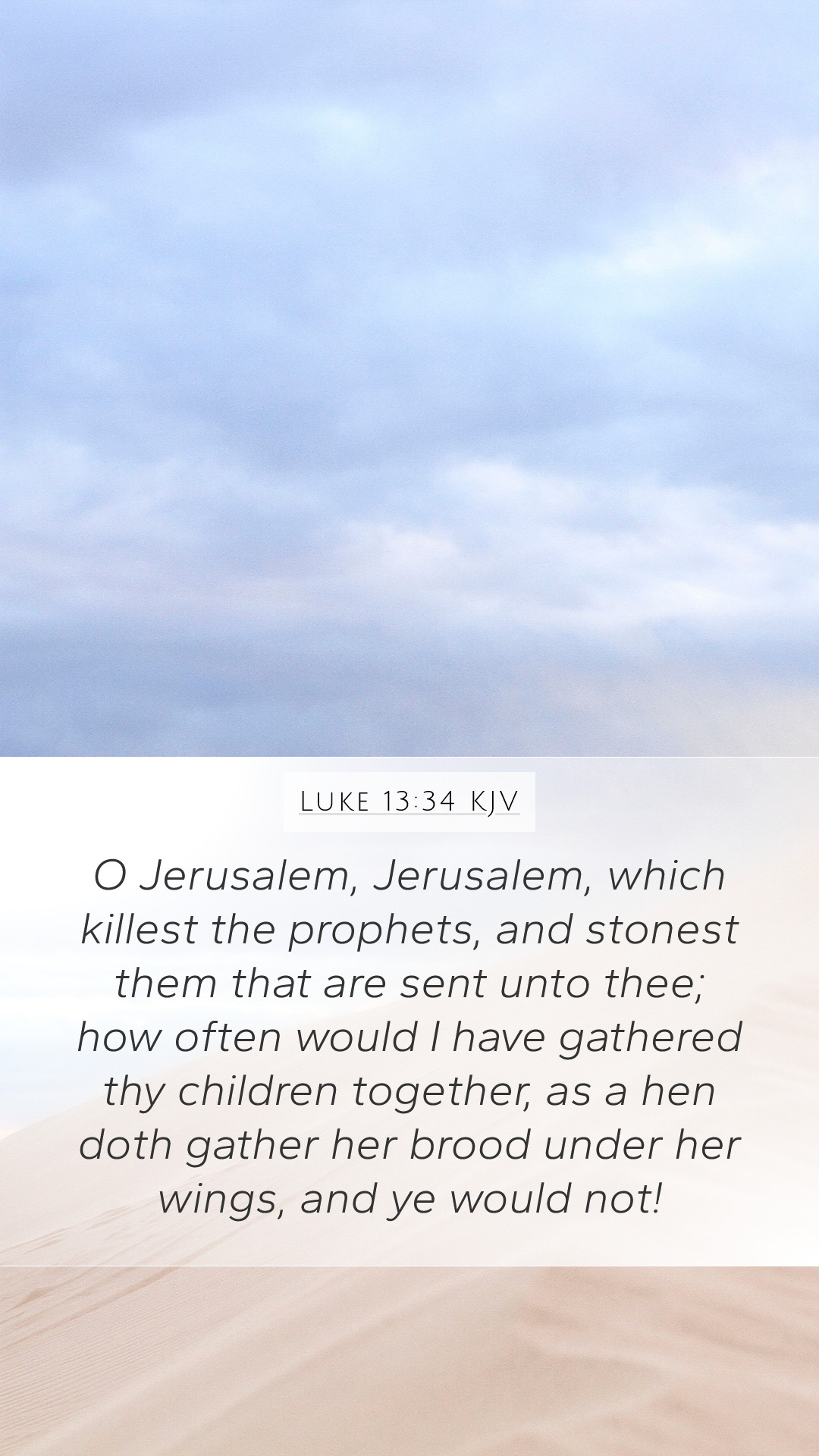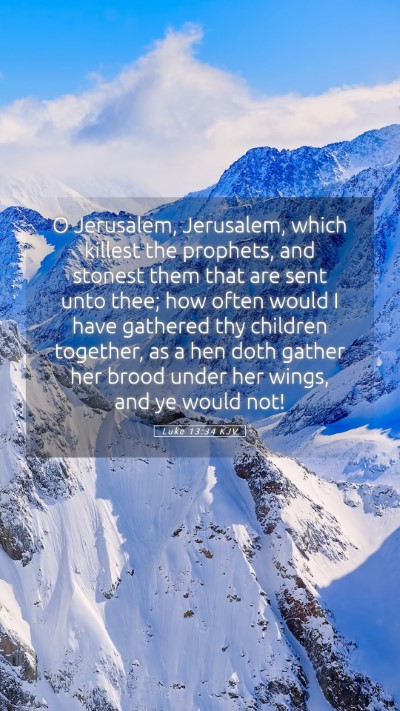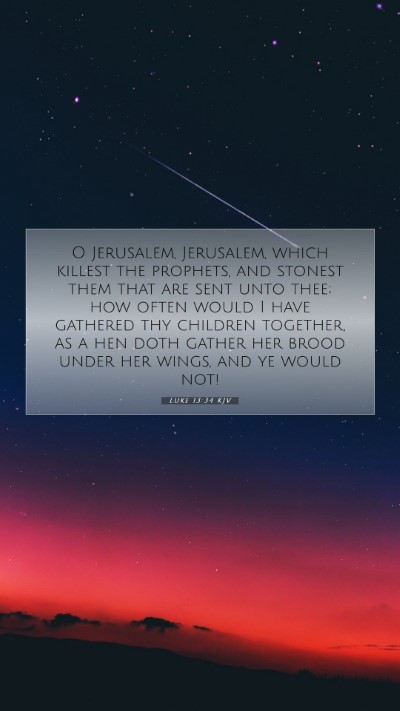Bible Verse Meaning: Luke 13:34
Verse: “O Jerusalem, Jerusalem, which killest the prophets, and stonest them that are sent unto thee; how often would I have gathered thy children together, as a hen doth gather her brood under her wings, and ye would not!”
Summary of the Verse
This poignant verse expresses Jesus's lament over Jerusalem's rejection of His messengers and the consequences of their choices. It highlights the themes of divine longing, human obstinacy, and the protective nature of God’s desire for His people.
Commentary Insights
- Matthew Henry: Henry emphasizes the emotional anguish of Christ as He laments over Jerusalem. He points out that the city, emblematic of the Jewish nation, has a history of persecuting the prophets. The imagery of gathering the children like a hen reflects Christ’s maternal care and desire to protect His people from destruction.
- Albert Barnes: Barnes interprets this verse as a clear indication of Jesus’s deep sadness for a city that has repeatedly rejected God’s messengers. He discusses the metaphor of the hen, explaining how it symbolizes safety and protection, which Jerusalem refused by their persistent disobedience.
- Adam Clarke: Clarke expands on the idea of Jerusalem’s rejection of the prophets, suggesting it highlights a broader rejection of divine invitations throughout history. He notes that this rejection leads to dire consequences and serves as a warning to other nations about the dangers of ignoring God's call.
Understanding Scripture: Key Themes
The following themes are central to understanding Luke 13:34:
- Human Rejection: This verse illustrates how humans often reject God’s messages and messengers, leading to spiritual consequences.
- Divine Longing: God desires to gather His people and protect them, as demonstrated through the metaphor of the hen.
- Consequences of Disobedience: The verse reflects on historical patterns of disobedience and their outcomes, emphasizing the importance of heeding God’s warnings.
Application of the Verse
When considering how to apply Luke 13:34 to daily life, we can reflect on our own openness to God’s message. Here are some application points:
- Evaluate whether there are areas in life where we are resisting God’s guidance.
- Think about how we can embody the protective and caring nature of Christ towards others.
- Acknowledge the importance of listening to wise counsel and the voice of God through His word and those He sends into our lives.
Bible Cross References
- Matthew 23:37: Jesus expresses similar feelings towards Jerusalem.
- Luke 11:49: Highlights the sending of prophets and apostles and their mistreatment.
- Isaiah 63:10: Discusses the rebellion against the Holy Spirit and its consequences.
Conclusion
Luke 13:34 serves as a profound reminder of God’s longing for His people and the tragic consequences of their rejection. Through various interpretations and commentaries, we can glean deeper insights into the nature of God’s love and the importance of heeding His call.
Explore More: For those interested in Bible study, consider joining bible study groups or utilizing bible study tools and resources that offer insights into these complex passages. Understanding meaning of Bible verses is crucial when striving for personal growth in faith.


